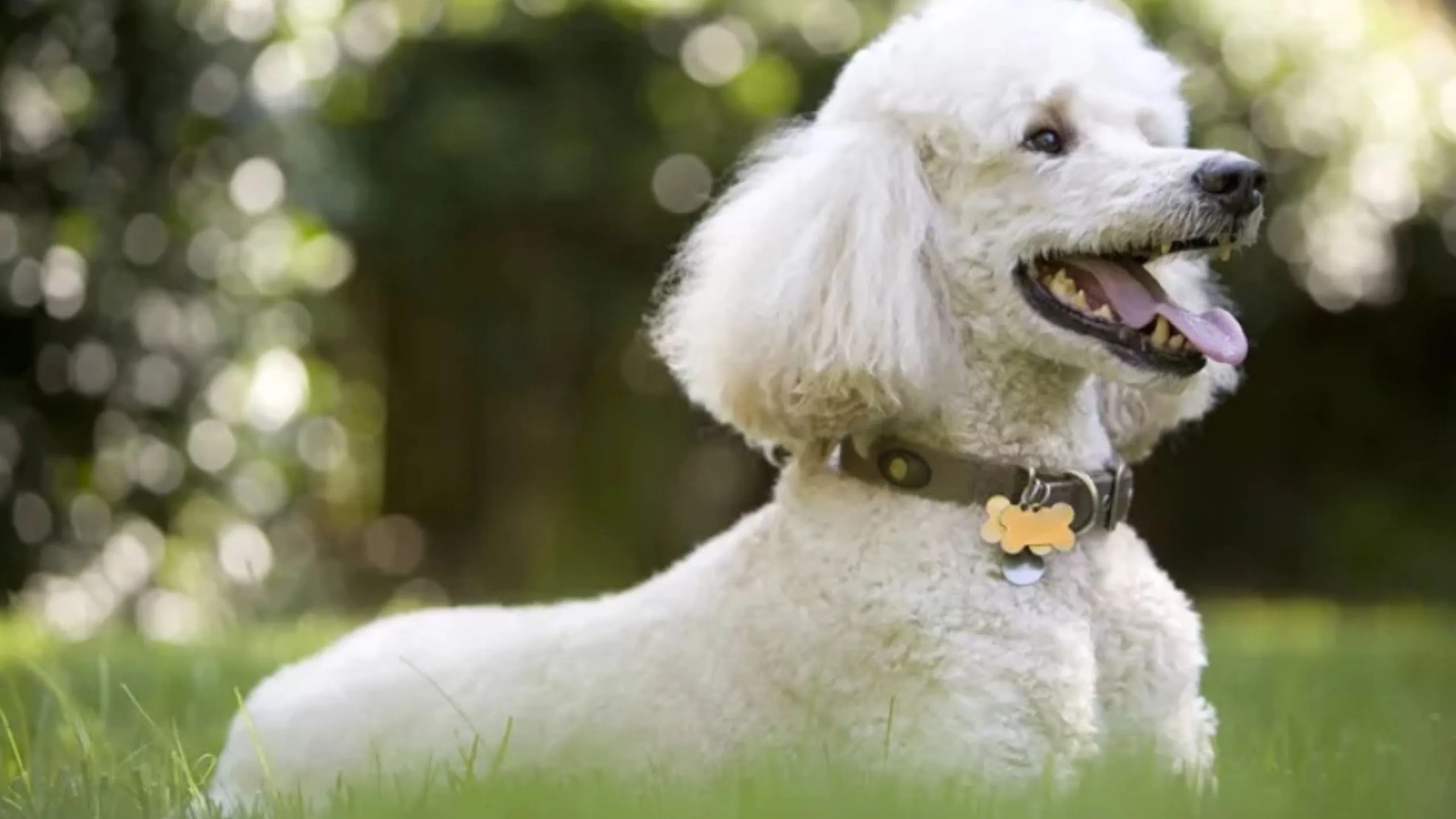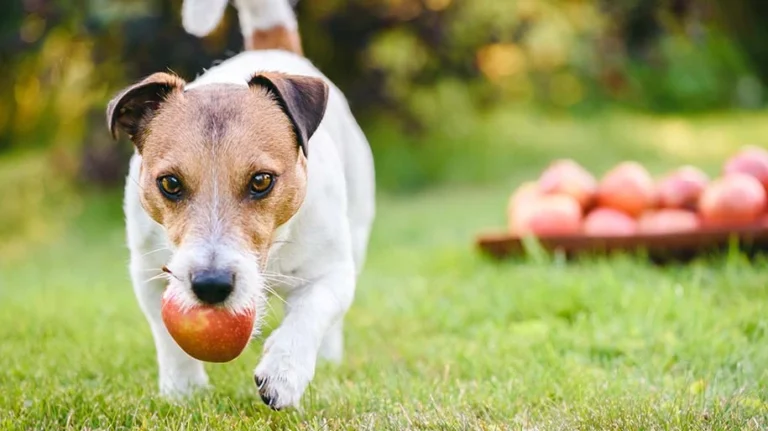Teacup Poodles: What You Need to Know About Their Size and Care
Table of Contents
When I first held a teacup poodle, my life changed forever. These tiny dogs capture hearts with their size and lively personalities. If you’re thinking of getting one, get ready for an amazing journey.
Teacup poodles are the smallest type of poodle, weighing 2 to 5 pounds. They’re great for people living in apartments or who want a small pet. They fit perfectly in small spaces.
These little dogs are more than cute. They’re smart, loving, and full of energy. Knowing how to care for them is key to their happiness and health.
This guide is for anyone interested in teacup poodles. We’ll cover their health, grooming, and more. We aim to make you the best teacup poodle parent.
Understanding Teacup Poodles
Exploring the world of teacup poodles is fascinating. They are a special part of the poodle family, even though kennel clubs don’t officially recognize them. These tiny dogs have won the hearts of many, looking for a small but loving pet.
Teacup poodles are the smallest in the poodle family. They differ from toy and miniature poodles in size and appearance.
Physical Characteristics
Teacup poodles are known for their small size and unique features. They usually weigh less than 4 pounds. Here are some of their key physical traits:
- Silky, curly coat that comes in multiple colors
- Proportionate body with delicate bone structure
- Expressive eyes and an alert facial expression
- Compact size perfect for apartment living
Official Recognition Status
It’s important for potential owners to know about teacup poodles’ status. Kennel clubs do not officially recognize “teacup” as a standard classification. Breeders call them teacup poodles when they are very small, below the usual toy poodle weight.
Size Comparison with Other Poodle Types
To understand their size better, let’s compare poodle varieties:
| Poodle Type | Average Weight | Height |
|---|---|---|
| Standard Poodle | 40-70 pounds | 15-22 inches |
| Miniature Poodles | 10-15 pounds | 10-15 inches |
| Toy Poodles | 4-6 pounds | 8-10 inches |
| Teacup Poodles | 2-4 pounds | 6-8 inches |
Knowing these differences helps you decide if a teacup poodle is right for you. It depends on your lifestyle and living situation.
The Complete Size Guide for Teacup Poodles
Teacup poodle puppies are adorable indoor dogs. They have a miniature size and a charming look. These tiny friends usually weigh between 2 to 5 pounds. They stand about 9 to 10 inches tall at the shoulder, making them ideal for small spaces.
It’s important to know the size of teacup poodles if you’re thinking of getting one. Their small size means they need special care:
- They need gentle handling because of their tiny frame.
- They grow very fast in the first few months.
- Good nutrition is key for their healthy growth.
When picking a poodle puppy, watch their growth closely. These small dogs grow up quickly, unlike bigger breeds. Most teacup poodles stop growing by 6-8 months, reaching their full size.
Remember, these cute indoor dogs need special care. They need the right food, controlled exercise, and regular vet visits. This ensures they stay healthy and happy in your home.
| Age | Typical Weight Range | Height |
|---|---|---|
| Puppy (2-4 months) | 1-3 pounds | 6-8 inches |
| Adult (8-12 months) | 2-5 pounds | 9-10 inches |
Personality and Temperament Traits
Teacup poodles are amazing as companion dogs. They bring lots of charm and smarts to any home. Their small size doesn’t stop them from being full of life and love.
Intelligence and Trainability
Teacup poodles are incredibly smart. They learn fast and love to please their owners. This makes training a fun task.
Short, consistent training sessions work best for these small dogs. They quickly pick up new skills.
Social Behavior
Teacup poodles have big hearts in small bodies. They bond strongly with their families. They also enjoy meeting new people and dogs.
Compatibility with Families
Teacup poodles are great for families. They love being part of the action and getting lots of attention. Supervised interactions with children are recommended to keep everyone safe.
These dogs fit well in many homes, from apartments to houses with small yards. But, they need gentle care and socialization because of their small size.
Essential Health Considerations
Poodle care is crucial for teacup poodles. They face unique health challenges that need constant attention. It’s important to monitor and prevent these issues.
Teacup poodles are at risk for several health problems because of their small size. Knowing about these issues helps you care for them better and spot problems early.
- Dental health challenges are common in teacup poodles
- Eye problems can develop as they age
- Patellar luxation may affect their mobility
Regular vet visits are key to keeping your teacup poodle healthy. Your vet can do detailed checks and help with genetic issues.
Here are some health concerns for teacup poodles:
- Genetic screening to identify potential inherited conditions
- Routine dental examinations
- Annual vision and orthopedic assessments
Teacup poodles can live from 12 to 15 years. Good care, including diet, exercise, and health checks, can improve their life and longevity.
“Prevention is always better than cure when it comes to your tiny companion’s health.” – Veterinary Experts
Understanding and tackling health risks is vital. It keeps your teacup poodle happy, healthy, and full of life.
Grooming Requirements and Maintenance
Poodle grooming is key for your teacup poodle’s health. These cute, hypoallergenic dogs need regular grooming. This keeps their coat looking great and prevents mats.
Teacup poodles have a special coat that makes them stand out. They shed less, which is good for people with allergies. Their fur is curly and dense, so it needs regular care to stay nice.
Coat Care Techniques
Here are important steps for coat care:
- Brush your poodle’s coat daily with a slicker brush
- Use gentle, detangling techniques to avoid skin irritation
- Check for any skin issues or unusual bumps during grooming
- Use professional-grade pet grooming tools designed for small dogs
Professional Grooming Schedule
Professional grooming is vital for your dog’s coat health. Experts suggest:
- Professional grooming every 4-6 weeks
- Full haircut and styling by a certified pet groomer
- Thorough cleaning and inspection of coat and skin
- Nail trimming and ear cleaning during professional sessions
At-home Grooming Tips
For in-between professional visits, use these simple at-home techniques:
- Use a leave-in conditioner to keep the coat soft
- Trim around eyes and paws carefully
- Bathe your poodle every 3-4 weeks using hypoallergenic shampoo
- Check and clean ears weekly to prevent infections
Diet and Nutrition Guidelines
Feeding your teacup poodle needs careful attention. They have small stomachs and high energy needs. The right food is key for their health and energy.
Small breed dogs like teacup poodles need specific nutrients. Look for high-quality, nutrient-rich foods in small amounts. Protein should be the main ingredient, with chicken or fish being best.
- Select kibble specifically designed for small breed dogs
- Choose foods with at least 25-30% protein content
- Avoid fillers and artificial preservatives
- Consider wet food to increase moisture intake
Teacup poodles need small portions of food. They usually eat 1/4 to 1/2 cup daily, in two or three meals. This helps prevent low blood sugar.
“Nutrition is the foundation of your teacup poodle’s health and longevity.” – Veterinary Nutrition Experts
Supplements can help but only with vet advice. Omega-3 fatty acids, calcium, and vitamins support their health and immune system.
- Consult your veterinarian about specific nutritional needs
- Monitor weight regularly
- Adjust diet as your dog ages
Exercise and Activity Requirements
Teacup poodles are small but full of energy. As indoor dogs, they need special exercise plans. It’s important to know what they need to stay healthy and happy.
Daily Exercise Needs
Your teacup poodle needs short, regular exercise. Try for two to three 10-15 minute walks a day. Remember, they are small and need gentle activities to stay fit and sharp.
- Morning walk around the apartment or neighborhood
- Midday play session indoors
- Evening short walk or interactive playtime
Safe Activities for Small Dogs
Choose safe activities for your teacup poodle. Indoor games and controlled spaces are best for them.
- Soft toy fetch in a carpeted room
- Puzzle toys that encourage movement
- Gentle tug-of-war with soft rope toys
- Indoor obstacle courses with low-height barriers
Mental Stimulation Ideas
Mental exercise is key for teacup poodles. They are smart and need activities that challenge their minds.
- Training sessions with short, fun commands
- Hide-and-seek games with treats
- Interactive electronic pet toys
- Rotating toy collection to maintain interest
Every teacup poodle is different. Watch your dog’s energy and talk to your vet for a custom exercise plan.
Common Health Issues and Prevention
Teacup poodles need special care because of their small size and health issues. Knowing about these problems helps protect your tiny friend.
Teacup poodles face health problems because of their small size. Their genetics can affect their health, making early care important.
- Dental Problems: Their small mouths can lead to crowded teeth and gum disease.
- Bone Fragility: Their bones are weak, making them more likely to break.
- Hypoglycemia: Low blood sugar can cause weakness and serious health issues.
Preventing health problems is key in caring for poodles. Regular vet visits and genetic tests can help. These steps can lower the risk of inherited diseases.
Here are some health tips:
- Get annual vet check-ups.
- Feed them special food for small breeds.
- Give them gentle exercise and help them stay at a healthy weight.
- Keep their teeth clean.
Knowing about these health issues helps you care for your teacup poodle. This way, you can ensure they stay healthy for a long time.
Finding and Choosing a Teacup Poodle
Finding the right poodle puppy is a big decision. It’s important to know what makes a healthy and happy pet. This starts with understanding the key factors to look for.
Start by looking for breeders who care about their dogs’ health. They should:
- Provide comprehensive health certificates
- Allow potential owners to visit their breeding facilities
- Offer transparent genetic testing results
- Demonstrate extensive knowledge about teacup poodles
When choosing a breeder, ask lots of questions. Find out about the puppy’s family history, health, and how they’ve been socialized.
| Breeder Evaluation Criteria | What to Look For |
|---|---|
| Health Screenings | Documented genetic tests for inherited conditions |
| Socialization | Early exposure to different environments and experiences |
| Breeding Practices | Ethical and responsible breeding methods |
Pro tip: Think about adopting a poodle instead of buying from a breeder. Many rescue groups have teacup poodles looking for homes.
“The right poodle puppy is not just about appearance, but about finding a companion that matches your lifestyle and heart.” – Professional Dog Breeder
Choosing a poodle puppy is a big decision. It’s about finding a pet that fits your life and heart. Take your time, ask questions, and trust your instincts.
Conclusion
Teacup poodles are a great choice for those looking for a small, smart pet. They need special care and lots of attention. This includes health care and grooming.
Before getting a teacup poodle, think about your lifestyle. Do you have enough space and time for them? They need lots of emotional and physical support. Their small size means they can get sick easily, so it’s important to know how to take care of them.
Looking for a good breeder is key. You should also understand what these dogs need. They are loving but need a lot of care. Make sure your home is ready to provide the love and attention they need.
Having a teacup poodle can be very rewarding. They are smart, loving, and bring joy to families. But, it takes time and effort to meet their needs.







